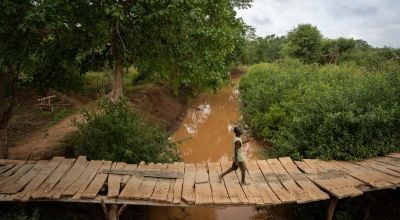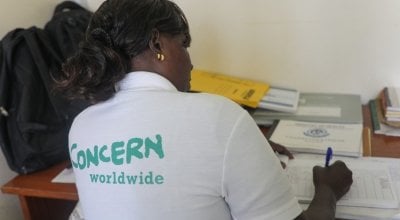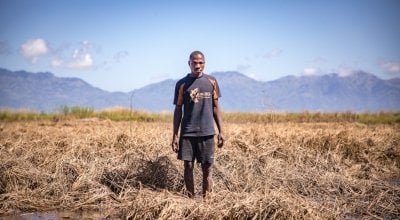
Read our 2024 annual report

Knowledge Hub
My Health, My Right - World Health Day 2018
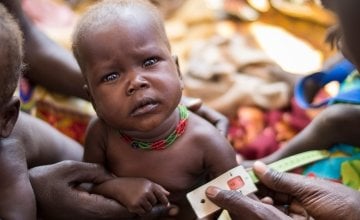
This World Health Day, on April 7th, Concern’s Global Health & HIV Advisor Breda Gahan discusses the right to health and Concern’s role in supporting Universal Health Coverage.
The right to health is more than just access to quality health services and medicines. It includes a range of important assurances such as:
- Respect and dignity, free from discrimination
- Gender equality
- Adequate sanitation and housing
- Nutritious food
- Health education
- Healthy working conditions
- A clean environment
- Freedom from harm and access to justice
- Being able to make decisions about one’s own health
Without a right to health, people cannot effectively access primary health services, prevent HIV or gain access to treatment and care. The extreme poor and most vulnerable are often marginalised and excluded, and the extreme poor bear the greatest burden of ill health. To ensure primary health care service access, a human rights-based system is needed, which includes four key elements:
- Access: health care must be affordable or free and comprehensive for everyone.
- Availability: there must be adequate health-care infrastructure and staff.
- Acceptability: health-care services must be respectful, non-discriminatory, culturally appropriate and treat everyone with dignity.
- Quality: all health care must be medically appropriate and of good quality.
Achieving the Sustainable Development Goals (SDGs), including SDG number 3 - ‘Ensuring healthy lives and promoting well-being for all at all ages’ will depend heavily on ensuring the right to health for all. Currently, half the world lacks access to essential health services, and 100 million are still pushed into extreme poverty because of health expenses every year.
Universal Health Coverage (UHC)
The World Health Organisation’s theme for World Health Day 2018 is ‘Universal health coverage – everyone, everywhere’. This means that all individuals and communities receive the health services they need without suffering financial hardship. It includes the full spectrum of essential, quality health services, from health promotion to prevention, treatment, rehabilitation, and palliative care.
All UN Member States have agreed to try to achieve UHC by 2030, as part of the Sustainable Development Goals and Concern is supporting this effort in countries in Africa and Asia.
Concern’s role in achieving UHC
Concern works in 26 countries around the world tackling extreme poverty and recognises that poverty, inequality, marginalisation and social exclusion are both root causes and consequences of poor health. Lasting improvements in health can therefore only be achieved through a multi-disciplinary approach tackling many of the root causes of poverty and developing stronger links, in particular with the sectors of food security, livelihoods and education.
Concern is also aware of the need to balance curative and preventative approaches to health but for the most part, Concern is focusing on improving health through Primary Health Care in emergency, fragile and in development contexts. Below are just some of the achievements we have made in 2017 with our implementing partners in supporting towards UHC:
In Chad and in collaboration with the Goz Beida Health District, health staff at 5 health centres and 70 Community Health Workers were trained to improve demand, access and quality of health services in the Sila region.
In Aweil North and Aweil West, South Sudan, 49 health facilities are providing integrated nutrition and health services. A referral system for children with complicated Severe Acute Malnutrition has also been established. Below, little 14 month old Chan Adim Garang, one of twin girls admitted to the outpatient therapeutic programme run by Concern in Maduany in Aweil North, South Sudan gazes quizzically at the camera as her mid-upper arm circumference is being measured. The red colour indicates severe acute malnutrition and is why Chan Adim was referred for treatment.
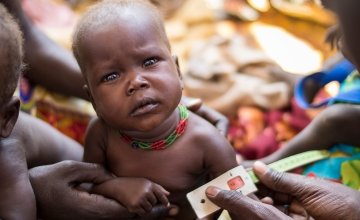
Following a call in 2016 and starting in mid 2017, the EUTF funded Sudan programme aims to strengthen local health systems to better deliver basic packages of health services in West Darfur with the final aim of creating a more conducive and sustainable living environment for all populations. This action will aim to strengthen community resilience, social cohesion and peace building in areas affected by flows of returnees from Chad as well as areas affected by internal displacement and refugee flows.
Being implemented with International Medical Corp, the theory of change and overall objective is that vulnerable populations (host communities, internally displaced persons and returnees) will access better health and integrated nutrition services which will improve their health status and resilience.
In West Kordofan in Sudan, access to life-saving humanitarian health services to conflict-affected communities continued in 2017, with a focus on advocacy, equality, partnership and capacity building, and mainstreaming responses to HIV and AIDS.
In Bangladesh, the EU funded Urban Health and Nutrition project implemented with Brac forged partnerships with Dhaka North, Dhaka South, Chittagong City Corporations and Mymensingh Municipality plan to facilitate access for 878,647 urban extreme poor people a package of essential primary health services through a health voucher scheme. Below is Ratna, pregnant with her first baby, she is receiving an ante-natal check-up in her home by Community Health Worker Shahida in Badda Tinshed Slum, in Dhaka.
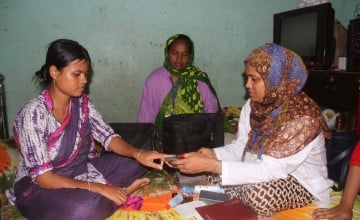
In Malawi, we continued our work with Grassroot Soccer in 2017, where we supported 44 Coaches in Mchinji district to implement SKILLZ Girl, a 12 week life skills curriculum for girls age 10-19 that addresses sexual and reproductive health, HIV and AIDS, and gender inequality. Our Grassroot Soccer work will significantly expand in 2018 under a new partnership with Save the Children to implement the AMAA (Give Girls a Chance to Learn) project. Below, Girls can kick and learn! Beauty Mbewe, age 13, Diolinda Fernando, 13 and Esther Banda, 13 are part of Concern Worldwide’s Skillz Girls programme in Malawi and love playing football. Beauty says “Here in the Skillz Girl team, I have found friends”.
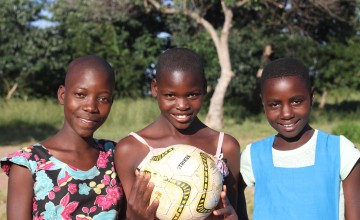
Going forward
Continuing on in 2018, Concern with partners in all of our countries of operation will continue to support the extreme poor and health workers, serving them to access their right to health and HIV services, thereby contributing to SDG Goal 3, to end the injustice of low service coverage for the poorest and most vulnerable.
Keep in touch
Find out more about this, and our other work, by receiving email updates.
In depth



